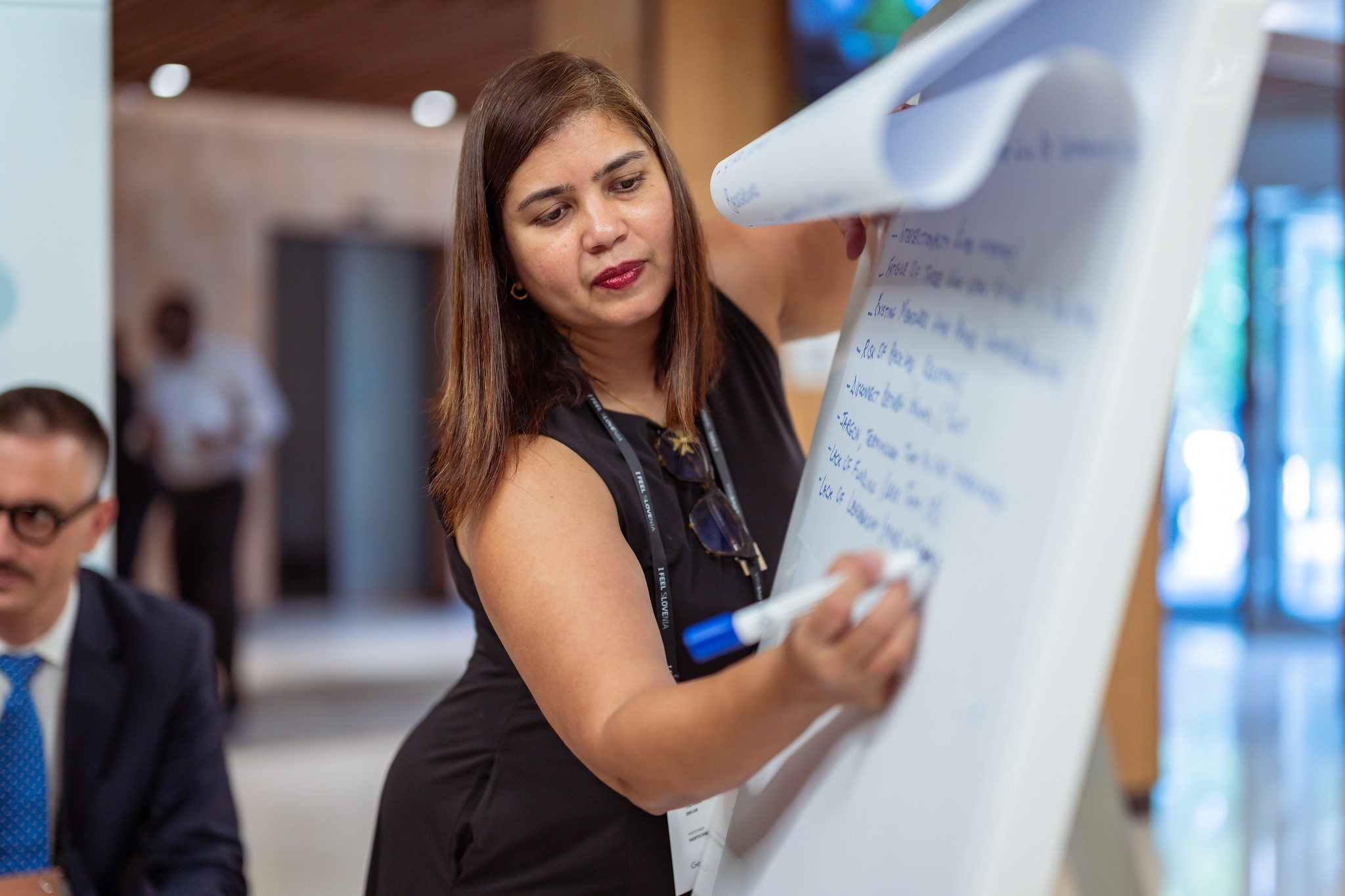Activities
Premiering a new format at Bled Strategic Forum 2024: The Inclusive Diplomacy Lounge, powered by GDL
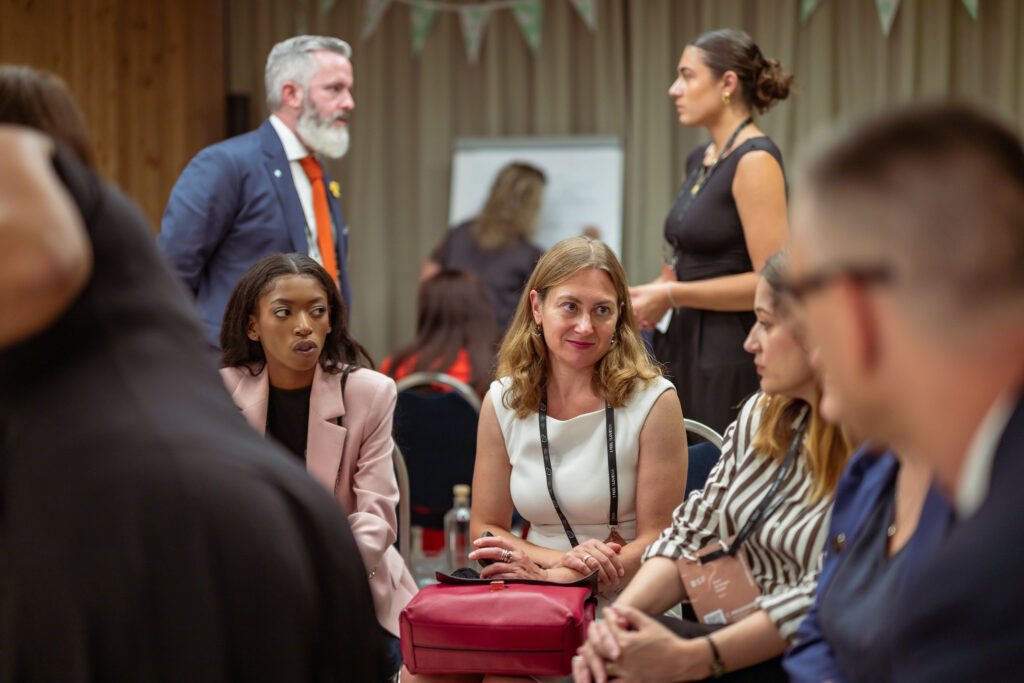
Format
Topic
Written by Elsa Marie D’Silva & Cristina Gallegos with inputs from Chris Fowler & David Patrician
The first Inclusive Diplomacy Lounge at the Bled Strategic Forum “A World of Parallel Realities” on 2 & 3 September 2024 offered the opportunity of a deep dive into the role of inclusive diplomacy in strengthening democracy.
Inclusive Diplomacy, also known as Diplomacy 4.0, is a modern must; an acknowledgement that discussing global governance and a common agenda cannot be achieved without the inclusion of diverse non-state actors participating along with states. Thus, diplomacy must be able to embody a country’s diversity, and it must xadvance collaborative, positive solutions to shared challenges.
To further Diplomacy 4.0, the Global Diplomacy Lab introduced a new format for interaction and dialogue: The Inclusive Diplomacy Lounge.
The Inclusive Diplomacy Lounge is a safe third space that holds innovative, multi-stakeholder dialogues, providing participants with additional opportunities to gain insights on existing global policy challenges, with the objective to ultimately prevent and resolve conflicts. This space facilitates discussions at various major international events with the goal of bringing different perspectives on the discussed topics. By fostering and deepening personal relations, encouraging diverse opinions and spaces of trust when hosting difficult dialogues regarding complex problems, the IDL is a stimulating medium for accelerating conflict resolution and diplomacy.
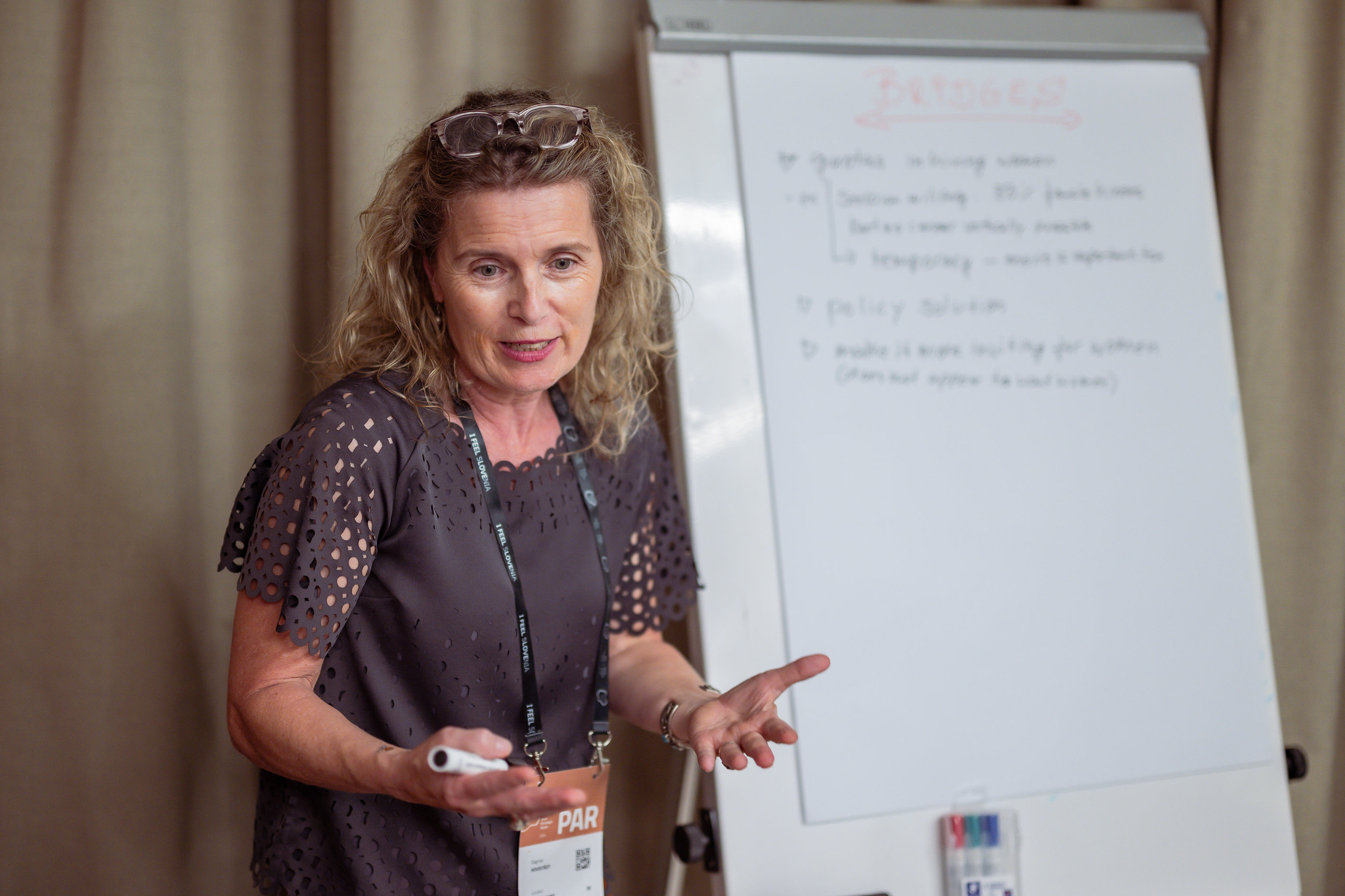
With the power of convening in mind, and bringing a different vibe to traditional conferences, the Inclusive Diplomacy Lounge is curated to equally hold structured and non-structured conversations for 1–2 days in an open room that can cover about 25 people at a time outside of the main stage.
Throughout the day, and considering the schedule of the event, 2 formal conversations will be held with an innovative methodology as well as 1 fireside chat with high level speakers. And, between these, the Lounge is open all day for one-on-one meaningful and deep dialogues which will be facilitated with the assistance of GDL members, a diplomat and/or a citizen diplomat.
“I enjoyed the IDL and liked its concept: low-key, less formal, open and genuine. I liked that we were in smaller groups and could share our experiences and ideas. The vision was interesting because it was as if we were part of a high-level decision-making circle, which deliberates on important topics in non-formal environments such as lounges and foyers. You lived up to the expectations deriving from the IDL’s name.”
Andrijana Paljušević, Young BSF member
Fireside Chat on Feminist Foreign Policy
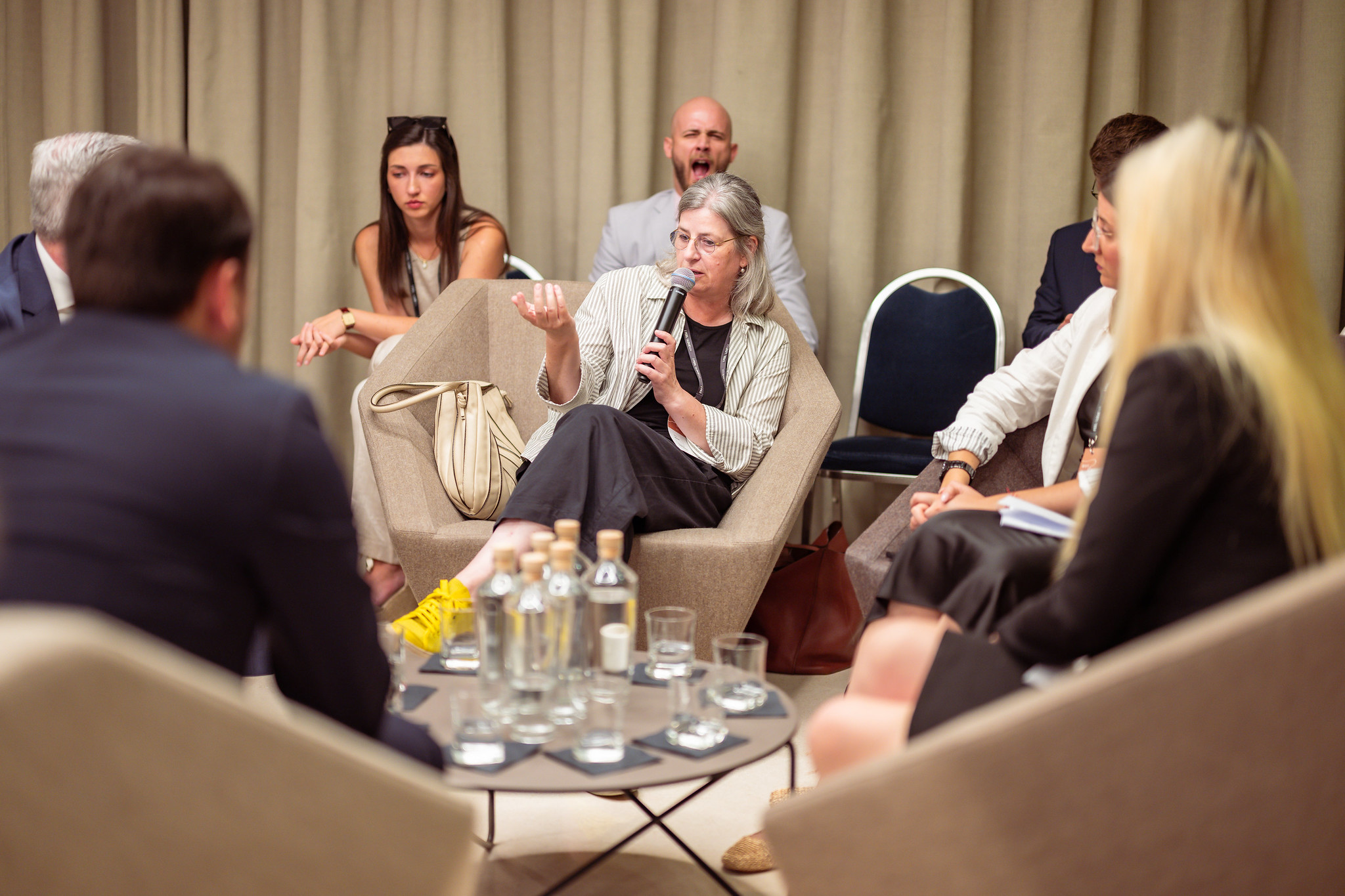
The IDL at BSF commenced on 1 September with a fireside chat with Minister of State of the German Federal Foreign Office, Dr. Tobias Lindner, moderated by David Patrician. (The meeting was off-the record, Chatham House Rules, so no additional details on the conversation will be provided beyond the broad description below).
Several important topics were discussed, including prioritizing Feminist Foreign Policy which the Minister leads. The refugee policy was discussed at length highlighting the importance of the needs of the refugees. The Israel Gaza conflict was unpacked through the lens of Germany’s Staatsräson (reason for state). Finally, the recent elections in two eastern German states were also discussed, as well as immigration, inflation, and the housing crisis.
Everyone appreciated the frankness and openness with which the Minister discussed these topics.
Interactive Formats on Future Visions for Diplomacy
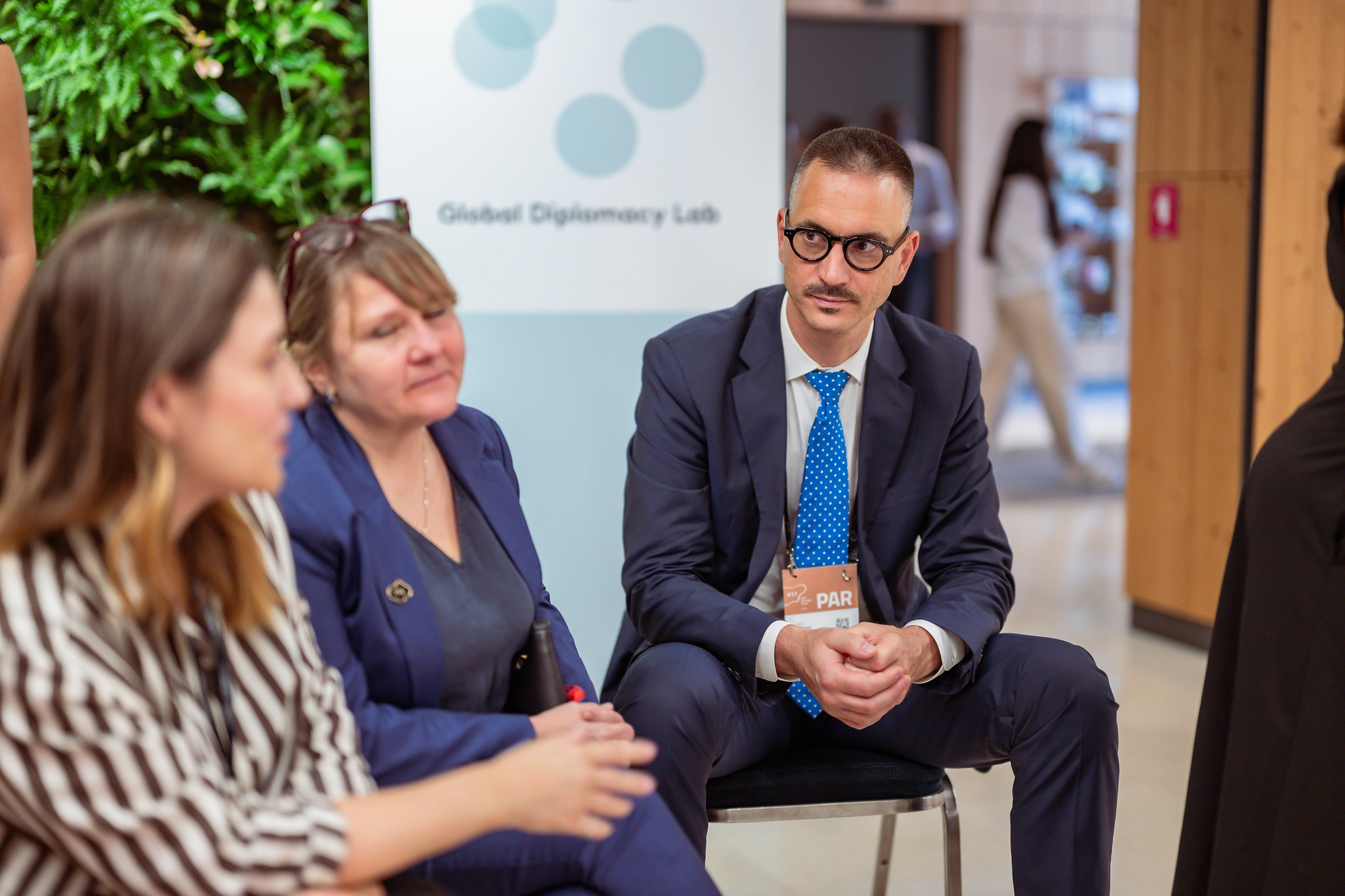
On 2 September, we had three lively and interactive sessions focusing on
- City Diplomacy
- Women Peace and Security, and
- Engaging Youth in co-creating a Future we want.
Fishbowl: Connecting Citizen Diplomats and Policy Makers for City Diplomacy
We facilitated an organic, fishbowl discussion that featured two diplomats and two young BSF participants. An open seat served as an invitation for audience members to join the fishbowl and share their perspectives.
Benefits of the fishbowl discussion format:
- It allowed Young BSF participants to sit at an eye-to-eye level and share their perspectives with senior diplomats.
- The openness of the discussion created an inclusive space for audience participants to share examples from their lived experience(s).
- Participants were able to see the universality of the issue by the common threads shared between each of the examples.
- The Sister City framework could be leveraged to strengthen peer exchanges and good practices.
- The city governments could involve more youth to understand current challenges faced, e.g. the GDL Youth Lab on peace in partnership with the City of Osnabrück.
This interactive discussion addressed the importance of leaders from cities and municipalities to include elected and appointed officials, as well as citizen diplomats in advancing their policy ideas and points of view in international fora. Examples were shared from Slovenia, Germany, Rwanda, India, and the United States. Five participants from the BSF, including Youth delegates strengthened the discussion with their interventions.
The fixed participants in the fishbowl were:
- Ambassador Sylvia Groneick, German Ambassador to Slovenia;
- Ana Novak, Diplomat from the Slovenian Ministry of European and Foreign Affairs;
- Nejc Krevs, Journalist, Editor and TV News Anchor (Slovenia);
- Andrijana Lazarevic, Research Assistant at Institute for Political Studies and Program Director at RESECO think tank (Serbia); and,
- closing remarks from GDL Dean Dirk Brengelmann.
A World Café on Women, Peace and Security
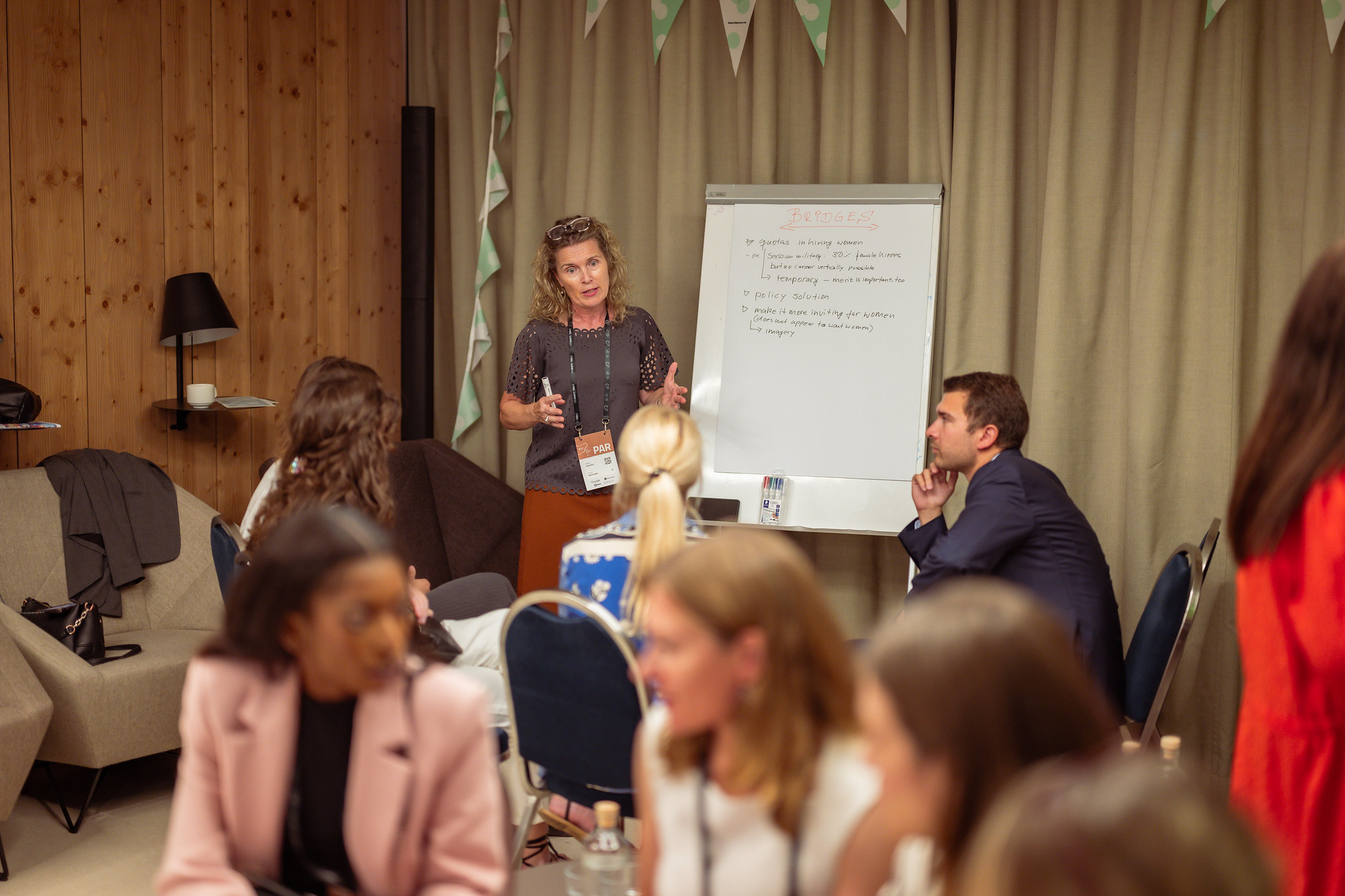
“This was my favorite session at the (Bled Strategic) Forum!”
Mrs. Julie Hill, wife of U.S. Ambassador to Serbia, Christopher Hill
The World Café serves as a progressive discussion within and between several small groups. It is a great format to capture inputs from your audience and encourage them to build upon the contributions of others.
The GDL organized a World Cafe that explored the role of women in international security through the following three lenses:
- Barriers: What obstacles do women face in advancing their perspectives and careers in International Security?
- Bridges: What role can male allies and/or mentors play in supporting women, and their leadership in this field?
- Benefits: What do we ALL gain from the full inclusion and sense of belonging of women in international security?
- Women, Peace and Security is an important topic that is often not understood by the larger population, is seen as a women’s issue and needs to be mainstreamed.
- Whilst Resolution 1325 is applicable in conflict areas, sexual and gender based violence is as everyday conflict and shows up at the home, in public spaces, at work and even in the digital realm. ILO’s C190 resolution was also discussed where only a few countries have signed up whilst it should be a priority especially as it discusses safety at workplaces for all.
- Most of the women participants had personal experiences to share where their rights were violated and often there was no formal recourse available for them to report or they were hesitant to pursue legal redressal due to fear, shame and the lengthy process for justice.
- Everyone agreed that we need more conversations and there was an increased and urgent need to engage men and boys in the conversation, invest in education at an early age and strengthen the legislative process and justice institutions.
- In addition, policies like Sweden’s parental policy, Germany’s Feminist Foreign Policy and India’s law on prevention of harassment at the workplace could be replicated and learned from.
An Immersive Approach to Engaging Youth
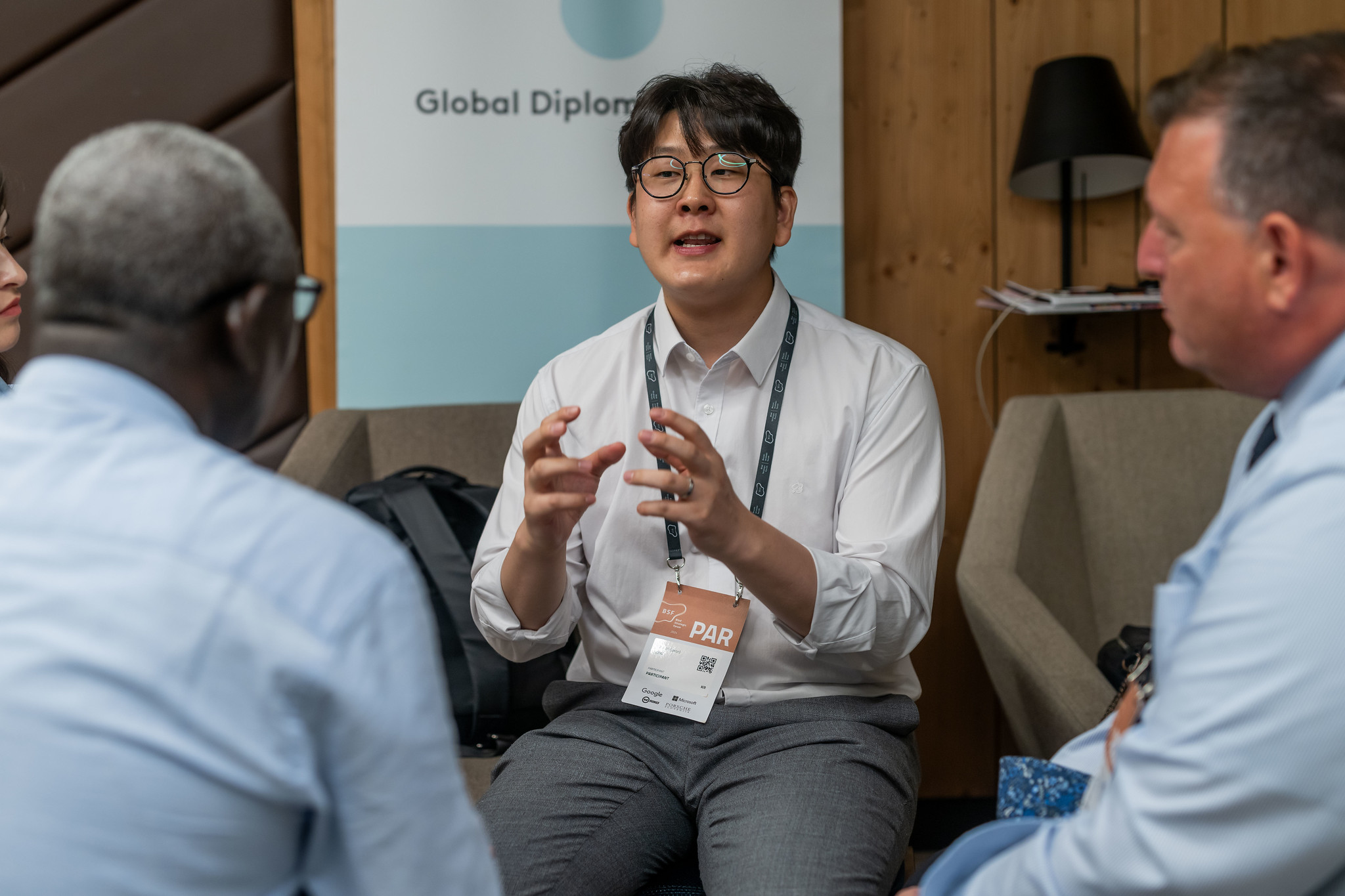
In keeping with our previous GDL focus on engaging youth, at this BSF we decided to partner with Young BSF and create a session that would bring their youth leaders closer to the GDL members.
Six Young BSF members were asked to submit topics that interested them and which they wished to lead conversations on. Each of these Young BSF members were paired with 1–2 GDL members and other participants of the BSF. For most of the session, the Young BSF members led the conversations and deep dived into the topics with the experts.
- All the young BSF fellows who participated confirmed that the interactions with GDL members and other participants increased their knowledge of their chosen topic and they were able to get real life practical examples of how it works in different parts of the world.
- The young BSF fellows said it increased their confidence to lead the conversation with experienced people. It compelled them to prepare ahead of time so that they could have a professional interaction.
- For GDL members, they have an opportunity to connect and learn from young people and understand the issue areas that they are interested in.
Participants from the Young BSF:
- Marija Hodalj, Professional Associate, Trainee at the Croatian Statehood Foundation, Croatia – Role of media and democracy
- Alexandru Andronic, Researcher at the Euro-Atlantic Resilience Centre, Romania – Role of traditional and social media in a democracy and promoting democracy at the international level.
- Samantha Mashapa, Dialogue and Advocacy Analyst at the Nelson Mandela Foundation, South Africa – From Otherness to Belonging: Navigating the Space Between
- Prithvi Gupta, Junior Fellow, Observer Research Foundation, India – The geopolitics and geoeconomics of trade, supply chains and connectivity
- John Zhanjie Zhao, Director, External Relations; Program Manager, Global Young Leaders Dialogue (GYLD), Center for China and Globalization, China – Increasing youth voices in public policy
- David Timis, Global Communications & Public Affairs Manager of Generation, Belgium – Impact of generative AI on the future of work, workers, and society
“The Inclusive Diplomacy Lab initiative, organized by Global Diplomacy Lab, was an immersive and thought-provoking exercise. Not only did I expand on my current knowledge base pertaining to my own research, but I was also able to gain insights from different perspectives or issues directly or indirectly related to my research on connectivity and supply chains issues. I highly recommend being part of other such initiatives by the Global Diplomacy Lab.”
Prithvi Gupta, Junior Fellow, ORF
“It was a wonderful experience collaborating with the IDL. I am grateful for the invitation to participate in the “walk-and-talk”. It was an honor to take part and engage with experts on such an important topic. I extend my sincere compliments and look forward to future collaborations.”
Marija Hodalj, Professional Associate, Trainee at the Croatian Statehood Foundation
“These young people drove the session’s format; this is fresh to me. I am passionate about increasing the young voices in public policy. So, this format at least tells me that, if young people want to lead the conversation with senior people, then we need to always do our homework and stay professional.”
John Zhanjie Zhao, Director, External Relations; Program Manager, Global Young Leaders Dialogue (GYLD), Center for China and Globalization
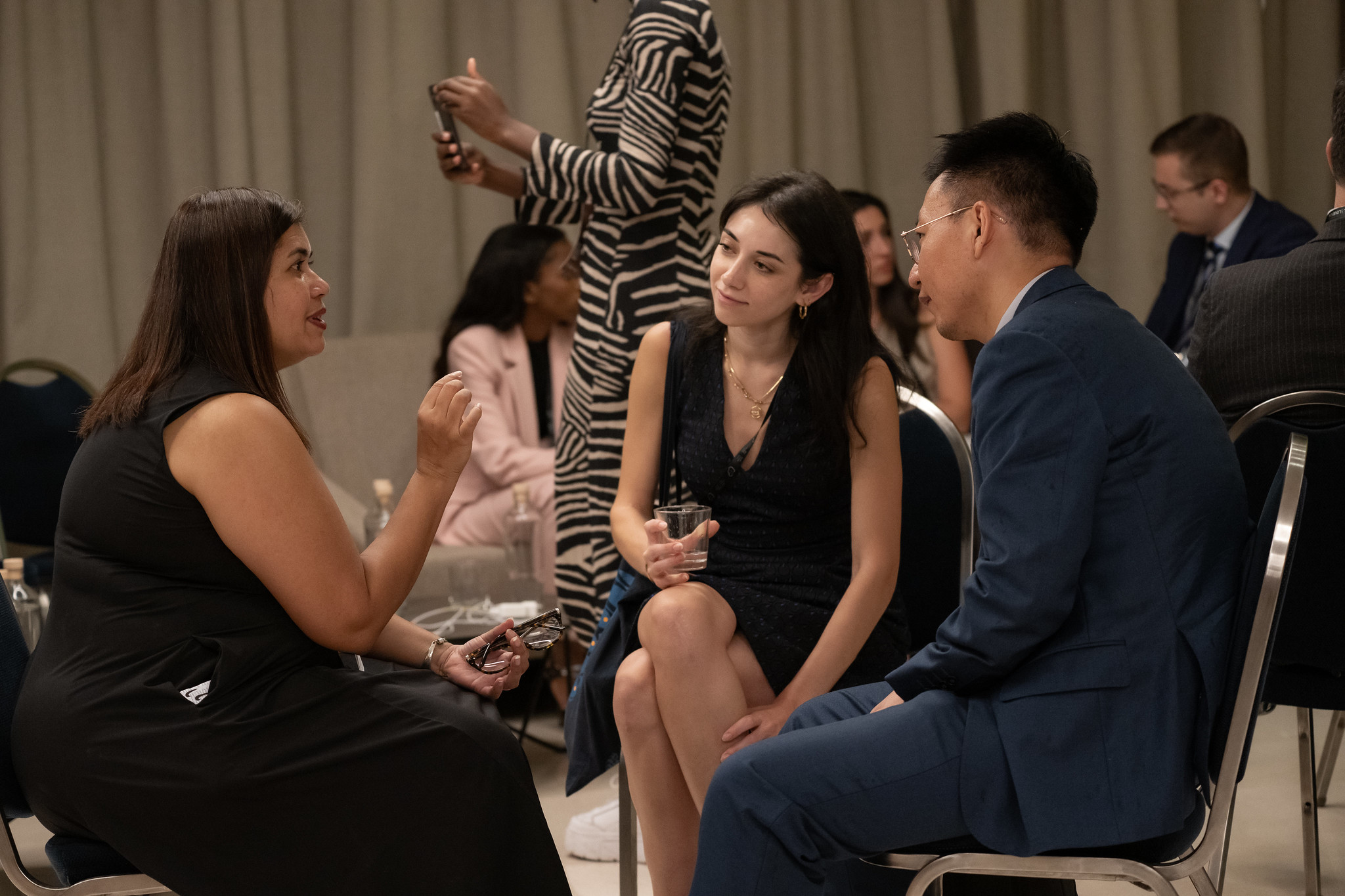
All in all, the Inclusive Diplomacy Lounge format was a great value-add to the BSF 2024 and the diplomatic discourse. Everyone who attended appreciated the space to share their thoughts in an authentic way and learn new perspectives. Several attendees stated that it was their favorite part of the conference, and that they want to be more engaged with the Global Diplomacy Lab. Further, the organizers of the Athens Democracy Forum were keenly following our progress and agenda from afar, insisting we host a mini Inclusive Diplomacy Lounge this year at the Athens Democracy Forum as well. As a direct benefit, this interest has resulted in two sessions at Athens Democracy Forum on 1 October 2024. The Athens Democracy Forum plans to further engage the Foreign Office of Greece during the sessions.
Additionally, inspired by the success of the Inclusive Diplomacy Lounge at the Bled Strategic Forum, two GDL members have spearheaded a 5-day hybrid format for the UNFCCC COP29 in Baku in November 2024, blending daily commentary on the COP29 negotiations with an in-person, high level intimate roundtable conducted in partnership with the Union of the Mediterranean and with projected participation from the Slovenian Ministry of European and Foreign Affairs, and the German Federal Foreign Office.
Another invitation has been extended to host an Inclusive Diplomacy Lounge at the Delphi Economic Forum in April 2025.
